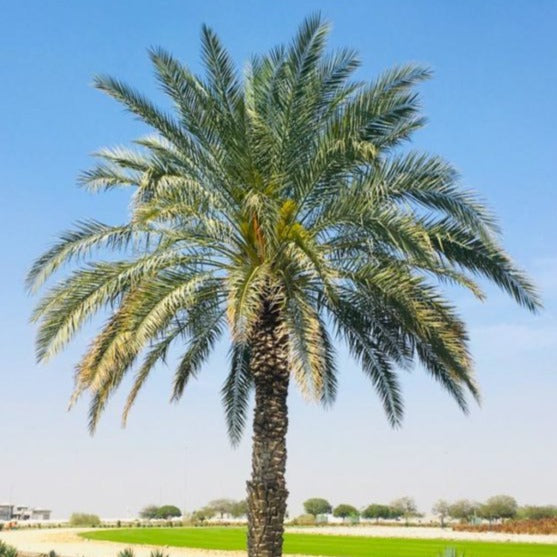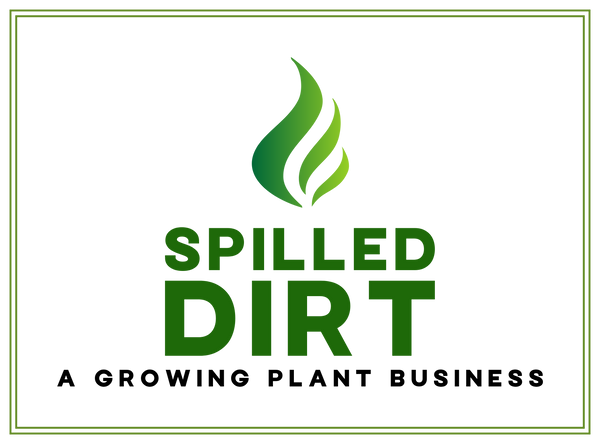Medjool Date Palm
Medjool Date Palm
Couldn't load pickup availability
Botanical Name: Phoenix dactyliferaNative Region/Environment: Likely Mesopotamia or the Persian Gulf. Fossilized date palms are 50 million years old so a single point of origin is challenging. Sun/Light: Full sun. Hardiness zone 8-12, flourishing in California to New Mexico and eastward to Florida and South Carolina. Temperature: Light frost may be acceptable , but a heavy frost will result in damage and they are not freeze tolerant. Water: Seedlings are water sensitive until established at 2 years old, then they are drought tolerant and only require supplemental irrigation during prolonged periods of excessive heat or low rainfall. Soil: Well drained alkaline soil of pH 8-11. The soil should have ability to maintain moisture but be free of calcium carbonate. Growth Pattern: Grown singularly or as a multi trunked clump of several planted together. They are dioecious-meaning there are male and female plants. One male is capable of fertilizing many, many females to produce fruit. They are single trunked plant with a crowning habit of fronds, 13'-20' long. They are not a self cleaning palm and require shearing of old fronds. Mature Size: Able, as a single palm under optimal conditions to grow to 80'-100', and live for a hundred years despite being a very slow grower. a mature crown may span 20'-30' or more. Attributes: Prized by palm tree enthusiasts and date lovers, capable of producing fruit 2, or even, 3 times in a year, and its mildly cold hardy, at least to zone 8. Attractor: A regal specimen palm with a little maintenance. Retain a clean look by cutting the dead fronds, typically in a 'diamond cut' pattern which dramatically adds to a landscaped appearance. |
The shape of the fruit, long and elongated, resembles a finger, hence the Greek word 'Daktylos' meaning "finger" and 'Fero' which means "I bear". Once considered an arid palm only, their naturalization regions now cover all regions that do not experience deep freezes, namely, the southern latitudes of the United States.
Pot: 1 gallon rooting bag


